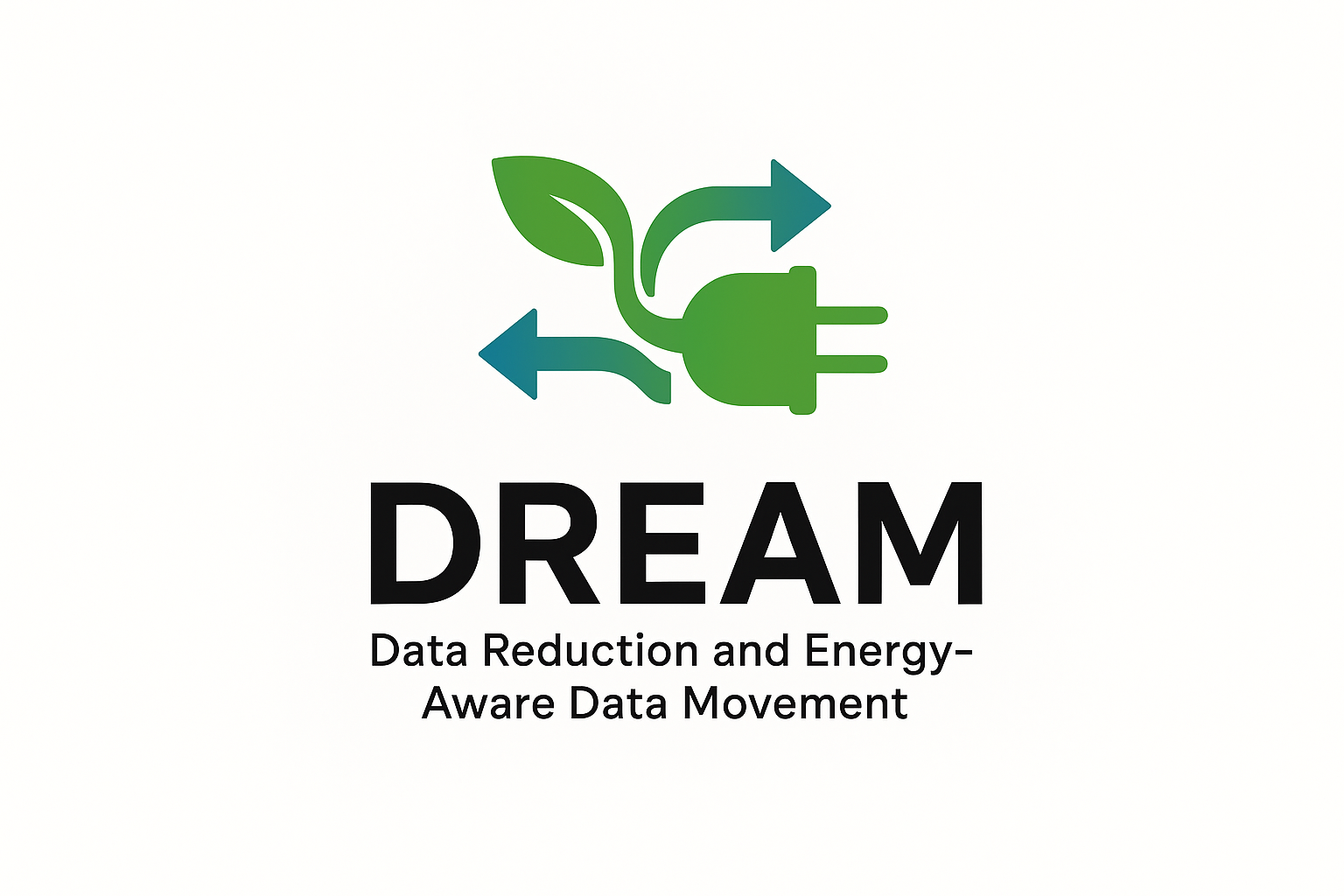
To be held on January 29, 2026 in conjunction with SupercomputingAsia 2026 and the International Conference on High Performance Computing in Asia-Pacific Region 2026, Osaka, Japan
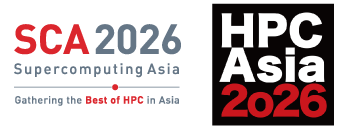
Workshop Abstract
AI and data-intensive workloads are driving up both computational and energy demands, with data movement and storage now consuming energy on par with computation. Yet, these costs remain poorly understood and rarely optimized. This workshop brings together researchers and practitioners from AI, HPC, and energy domains to address the challenges of modeling, profiling, and optimizing data flows for performance and sustainability. Topics include power profiling, bottleneck analysis, and energy-aware strategies across diverse architectures, from high-end HPC to resource-constrained systems. The workshop emphasizes holistic energy optimization, highlighting data movement as a critical factor in application performance and sustainability. It encourages the development of methods and tools that improve energy efficiency and supports collaboration toward more sustainable computing practices.
Topics of Interest
This workshop will focus on key technical areas critical to energy-efficient data movement across modern computing systems, including:
Best practices for balancing throughput, latency, and sustainability
Metrics and measurement approaches for data movement energy efficiency
Performance modeling for data-intensive and AI workloads
Tools and methods for data movement, data flow profiling, and tuning
Characterization of emerging workload and the power profile
Energy-aware dataflow and I/O optimizations
Power monitoring and reduction strategies for underlying subsystems
Energy measurements and modeling in emerging hardware
Call For Paper
All authors should submit manuscripts for review in a single-column format. Manuscripts must be at most 12 pages (+ 4 additional pages) in PDF format including figures and references, formatted according to the ACM Proceedings Style.
Authors submitting papers for DREAM2026 must do so via the EasyChair submission web page.
We use single-blind reviewing process so you can keep authors' names, publications, etc.
The submitted papers must be original work that have not previously been published or under consideration for publication in any other conference or journal
SCA/HPCAsia 2026 plans to provide an electronic proceedings publication for accepted workshop papers. In past years, SCA/HPCAsia workshop papers have been published in ACM-affiliated proceedings.
Paper Submission
All authors should submit manuscripts for review in a single-column format.
Manuscripts must be at most 12 pages (+ 4 additional pages) in PDF format including figures and references, formatted according to the ACM Proceedings Style.
Authors submitting papers for DREAM2026 must do so via the EasyChair submission web page.
The ACM templates for Word and LaTeX are shown below. Also, ACM has partnered with Overleaf and the ACM LaTeX template on Overleaf platform is available. Please follow STEP 1 (Microsoft Word/LaTeX) at “2. The Workflow and Templates” in https://www.acm.org/publications/authors/submissions. Please note that there are two different instructions for Word and LaTeX.
The ACM templates for Word and LaTeX (Overleaf). For more details, please visit the Primary Article Templates page.
Important Dates:
Final Submission deadline: October 15, November 8, 2025 (EasyChair)
Notification to authors: November 26, December 2, 2025
Camera-ready submission: December 10, 2025
Workshop date: Thursday, January 29, 2026 | 13:30 - 17:00
KeyNote
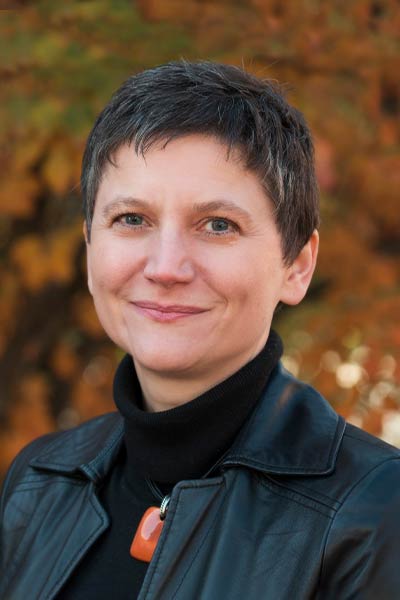
Speaker BIO
Michela Taufer is an ACM Distinguished Scientist. She was a J.P. Morgan Chase Scholar at the University of Delaware where she led the Global Computing Lab to promote the use of high performance computing to advance sciences. Michela Taufer joined the University of Delaware in 2007 where she was promoted to associate professor with tenure in 2012 and full professor in 2017. She earned her MS in computer engineering from the University of Padova and her PhD in computer science from the Swiss Federal Institute of Technology (ETH). She was a post-doctoral research supported by the La Jolla Interfaces in Science Training Program (also called LJIS) at UC San Diego and The Scripps Research Institute. Before she joined the University of Delaware, Taufer was faculty in computer science at the University of Texas at El Paso.
Taufer has a long history of interdisciplinary work with high-profile computational biophysics groups in several research and academic institutions. Her research interests include software applications and their advance programmability in heterogeneous computing (i.e., multi-core platforms and GPUs); cloud computing and volunteer computing; and performance analysis, modeling and optimization of multi-scale applications. She has been serving as the principal investigator of several NSF collaborative projects. She also has significant experience in mentoring a diverse population of students on interdisciplinary research. Her training expertise includes efforts to spread high-performance computing participation in undergraduate education and research as well as efforts to increase the interest and participation of diverse populations in interdisciplinary studies.
Taufer has served on numerous IEEE program committees (SC and IPDPS among others) and has reviewed for most of the leading journals in parallel computing. She served as the IEEE Cluster 2015 General co-Chair and the IEEE IPDPS 2017 General Chair. She is the ACM/IEEE SC19 General Chair.
Invited Talk
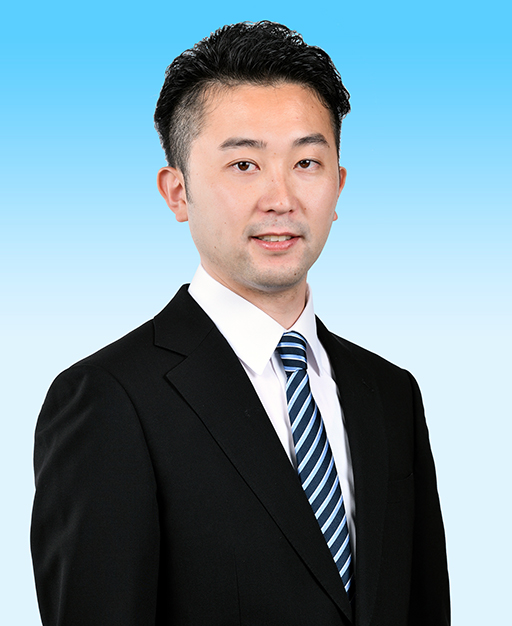
Speaker Bio
Kento Sato is the team leader of High Performance Big Data Research Team at RIKEN Center for Computational Science. His research area is distributed systems and parallel computing, particularly in High Performance Computing (HPC). Major focuses of his research are application reproducibility (MPI reproducibility, and Validation), scalable fault tolerance (Scalable checkpoint/restart, Fault tolerant MPI, Resilient system design), and I/O optimization (NVRAM, Burst buffer, and Big data), co-designing and cloud computing. He received his Ph.D. in the Dept. of Mathematical & Computing Sciences at Tokyo Tech.
Accepted Papers
Fine-Tuned Sentence-BERT for HPC Job Outcome Prediction via Textual Feature Embedding
Thanh Hoang Le Hai, Huy Nguyen Tuan, Bao Tran Dang, Bao Vo Thuong and Nam Thoai
Sustainable Power Reduction for DRAM applying Adaptive Stream-based Entropy Coding focusing on Video Processing System
Taku Nishikawa, Koichi Marumo and Shinichi Yamagiwa
Exploring I/O Performance and Power Consumption Trade-offs in Production Environments
Zhaobin Zhu, Andreas Henkel and Sarah Neuwirth
A Co-Simulation Framework for Building Energy Management as a Testbed for Energy-Aware Data Movement Analysis
Chomphunuch Wongphong, Patchararat Wongta and Worawan Marurngsith
Quantifying the Energy Cost of Performance Inefficiency in HPC Applications
Radita Liem and Dlyaver Djebarov
Program
13:30 - 13:35
Opening Remarks
Welcome Message & Speed Introduction
Keynote Talk
Invited Talk
Coffee Break
Paper Presentations
16:55–17:00
Closing Remarks
Organization
Program Co-Chairs
Ryoma Ohara - The University of Tokyo
Radita Liem - RWTH Aachen University
Zhaobin Zhu - Johannes Gutenberg University Mainz
Steering Committee
Florina Ciorba - University of Basel
Marta Garcia Gasulla - Barcelona Supercomputing Center
Toshihiro Hanawa - The University of Tokyo
Utz-Uwe Haus - HPE HPC/AI EMEA Research Lab
Kathryn Mohror - Lawrence Livermore National Laboratory
Matthias Müller - RWTH Aachen University
Sarah Neuwirth (Co-Chair) - Johannes Gutenberg University Mainz
Chen Wang (Co-Chair) - Nanyang Technological University
program committee
Andria Arisal - National Research and Innovation Agency, Indonesia
Suren Byna - The Ohio State University, USA
Worawan Diaz Carballo - Thammasat University, Thailand
Hariharan Devarajan – Lawrence Livermore National Laboratory, USA
Esmail Abdul Fattah - KAUST, Saudi Arabia
Lenny Guo – Pacific Northwest National Laboratory, USA
Andreas Henkel – Johannes Gutenberg-University Mainz, Germany
Jay Lofstead – Sandia National Laboratories, USA
Tiziano Müller - Hewlett Packard Enterprise
Sergey Noskov – Johannes Gutenberg-University Mainz, Germany
Ke Cui - RIKEN Center for Computational Science, Japan
Fumiyoshi Shoji - RIKEN Center for Computational Science, Japan
Nathan Tallent – Pacific Northwest National Laboratory, USA
Hoang Le Hai Thanh - HHCMC University of Technology, Vietnam
Wassapon Watanakeesuntorn - Osaka University
Chaiwat Wilasang - King Mongkut's University of Technology, Thailand
Keiji Yamamoto - RIKEN Center for Computational Science, Japan
Supported By

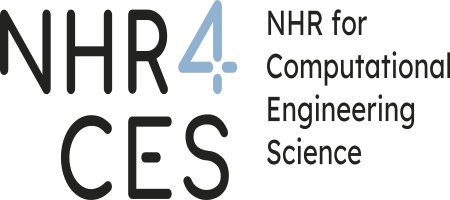
Contact
If you have any problems or questions, please contact the workshop co-chairs via e-mail at:
ohara803@g.ecc.u-tokyo.ac.jp, liem@itc.rwth-aachen.de, zhu@uni-mainz.de
© SCA/HPCAsia - Dream Workshop 2026
